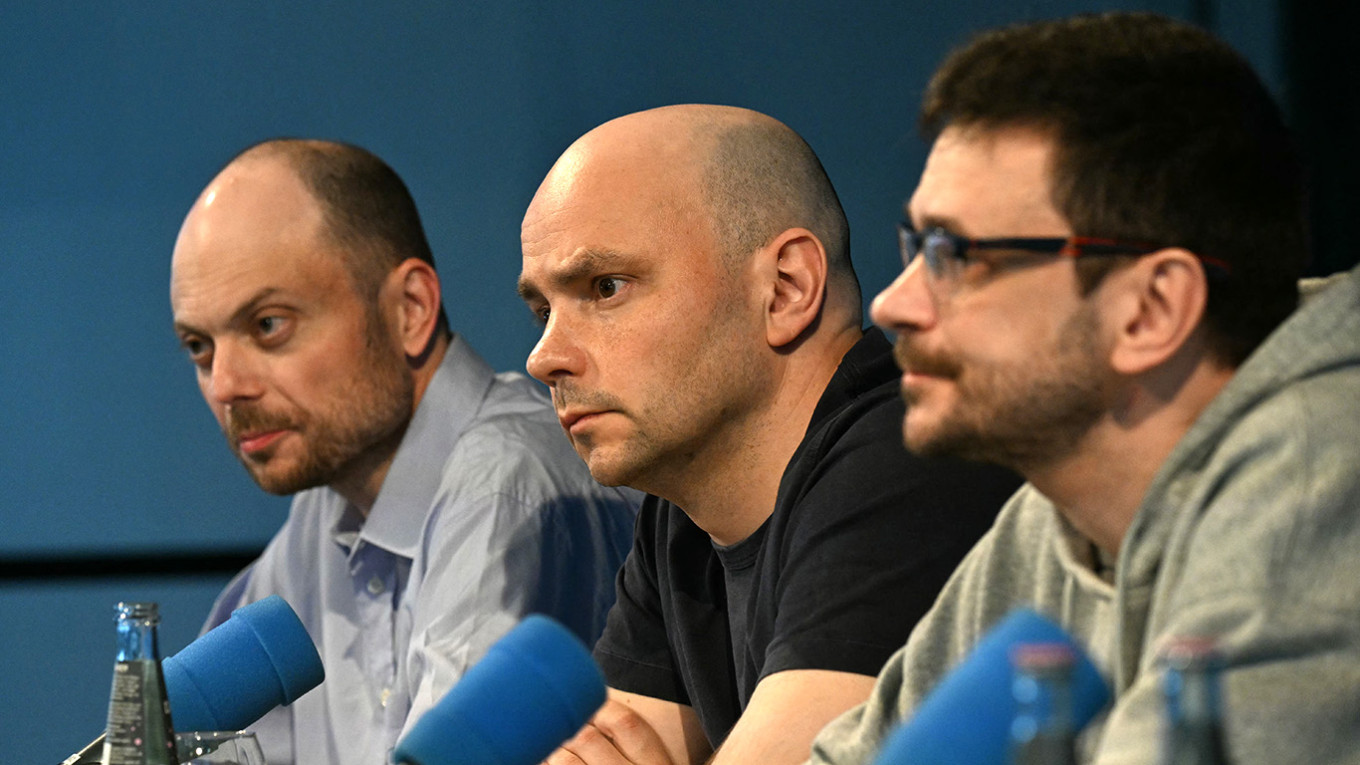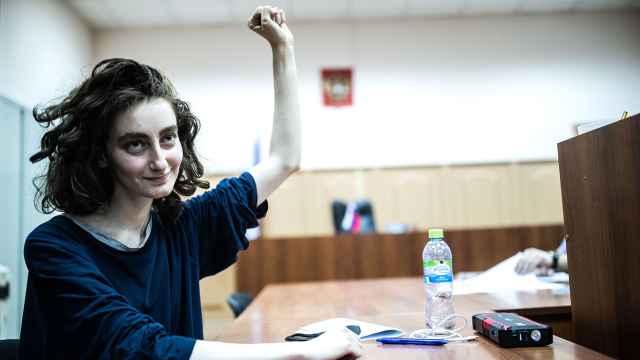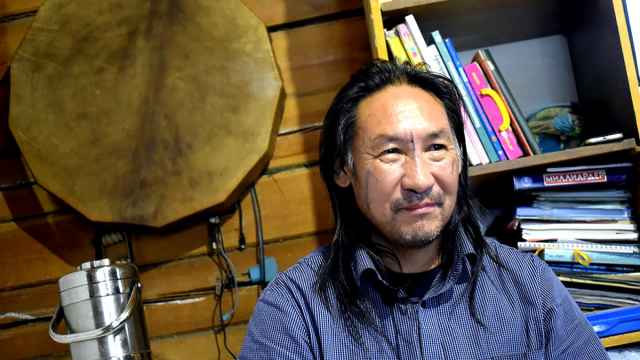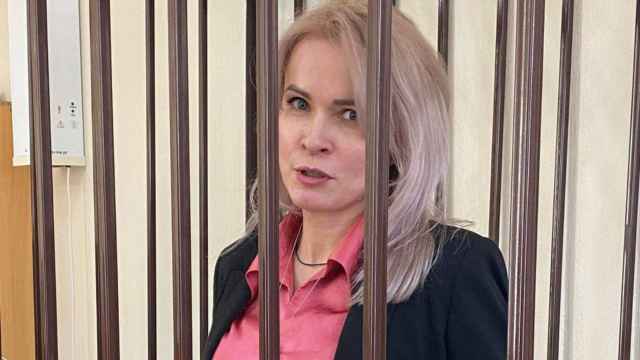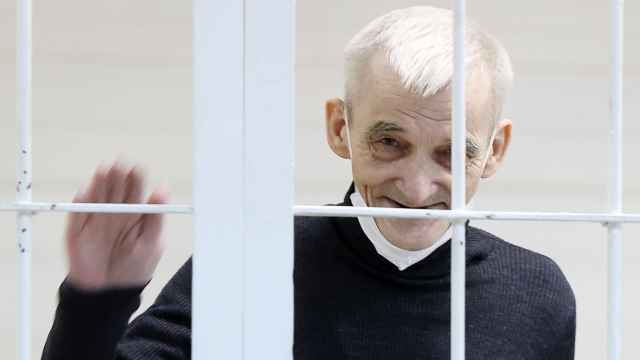On Aug. 1, 2024, my friend and colleague Vladimir Kara-Murza finally walked free from prison as part of the largest prisoner swap since the Cold War. This swap saw 24 individuals swapped, with 16 released by the Russians, and 8 released by the United States and other allies.
Seeing Vladimir reunited with his wife, Evgenia, and their three children has been a heartwarming moment for all involved.
However, unsurprisingly Kremlin propagandists immediately started portraying the swap as a great Western failure. Nothing is further from the truth – this swap, in my view, has exemplified more than ever before the stark differences between Vladimir Putin’s regime and the West. The idea that the swap is a victory for Russia is a classic example of propaganda and spin, masking the fact that it is a significant diplomatic win for the West.
The West received prominent individuals of great moral and strategic value: human rights activists, journalists arrested for the supposed crime of honest reporting on Putin’s Russia, and critics supporting a free and democratic future for the country. These individuals represent the principles of free speech, human rights, and democratic opposition to despotism.
In stark contrast, Russia received murderers, spies and criminals in return.
One of the people swapped, Vadim Krasikov, is a hitman who was arrested for murdering a Chechen commander in a Berlin park. Putin had long demanded his return, claiming never to have known him, yet greeted him like an old friend upon his arrival back in Russia.
This display of camaraderie with a state-sponsored killer underscores the Putin regime’s complete disregard for international law and human rights.
Putin’s embrace of Krasikov and other criminals on the runway is a stark reminder of the values his regime upholds. By honoring these individuals with a red-carpet welcome and promises of state rewards, Putin is sending a clear message about Russia’s stance on extrajudicial killings and espionage abroad.
For those who fear this deal might encourage the killing of dissidents globally, remember that Putin has never needed a reason to pursue his opponents abroad. He has always acted with impunity.
In essence, while the Kremlin is celebrating the return of operatives who undermined international law and security, the West has secured the freedom of individuals who stand for press freedom, human rights, and democratic values. This stark contrast to the nature of those exchanged reveals the true victor in this swap, regardless of the Kremlin's attempts to spin it otherwise.
Now that Vladimir is out of prison, I keep getting asked what comes next. The answer is simple. The job is not done yet.
First and foremost, we must redouble our efforts to support the political prisoners left behind in Russia. While the release of Kara-Murza and others is cause for celebration, countless individuals remain unjustly detained including opposition politician Alexei Gorinov, 63-year-old U.S. citizen Marc Fogel, Ksenia Khavana (who is facing a 15-year sentence for treason for donating $50 to a Ukrainian charity) and many more.
The sad case of Pavel Kushnir exemplifies the importance of freeing these individuals as soon as possible. Pavel was a talented concert pianist and anti-war activist who was arrested on charges of calling for terrorist activities in YouTube videos. His real so-called crime was to speak out against the invasion of Ukraine. He died in prison soon after the swap.
We will continue to advocate for the release of Russian political prisoners, and to amplify the stories of those that have sadly died in prison, to ensure that they are not forgotten.
The next area of focus will be to expand and strengthen Magnitsky sanctions regimes globally. Vladimir Kara-Murza was one of the most vocal supporters of this legislation before his incarceration, and I look forward to picking up where we left off and convincing more countries of the importance of holding human rights abusers and corrupt officials accountable for their crimes.
While significant progress has been made with the adoption of such laws in the United States, Canada, Britain, the Baltic states, the European Union, and Australia, there is still work to be done. We will continue to advocate for the implementation of Magnitsky Acts around the world to create a truly global network of accountability for human rights abusers.
Finally, I will continue to push for the seizure of Russia’s Central Bank reserves, which are currently frozen in the West and estimated to total approximately $350 billion. They should be handed to Ukraine to fund its defense against Putin’s violence.
The mass prisoner swap is a testament to the power of persistent advocacy and diplomacy. It reminds us that even in the darkest times, hope and justice can prevail. As we celebrate the freedom of Vladimir Kara-Murza and the others released in the swap, we must not lose sight of the work that lies ahead. The fight for human rights, democracy, and accountability in Russia and beyond is far from over. It requires our unwavering commitment, our collective voice, and our continued action.
Let this moment serve not as an end, but as a renewed beginning – a call to redouble our efforts in pursuit of a world where freedom and justice are not bargaining chips, but indisputable rights for all. The path forward may not be easy. But with each life freed from unjust imprisonment, we move closer to the dawn of a more just and democratic future.
A Message from The Moscow Times:
Dear readers,
We are facing unprecedented challenges. Russia's Prosecutor General's Office has designated The Moscow Times as an "undesirable" organization, criminalizing our work and putting our staff at risk of prosecution. This follows our earlier unjust labeling as a "foreign agent."
These actions are direct attempts to silence independent journalism in Russia. The authorities claim our work "discredits the decisions of the Russian leadership." We see things differently: we strive to provide accurate, unbiased reporting on Russia.
We, the journalists of The Moscow Times, refuse to be silenced. But to continue our work, we need your help.
Your support, no matter how small, makes a world of difference. If you can, please support us monthly starting from just $2. It's quick to set up, and every contribution makes a significant impact.
By supporting The Moscow Times, you're defending open, independent journalism in the face of repression. Thank you for standing with us.
Remind me later.



